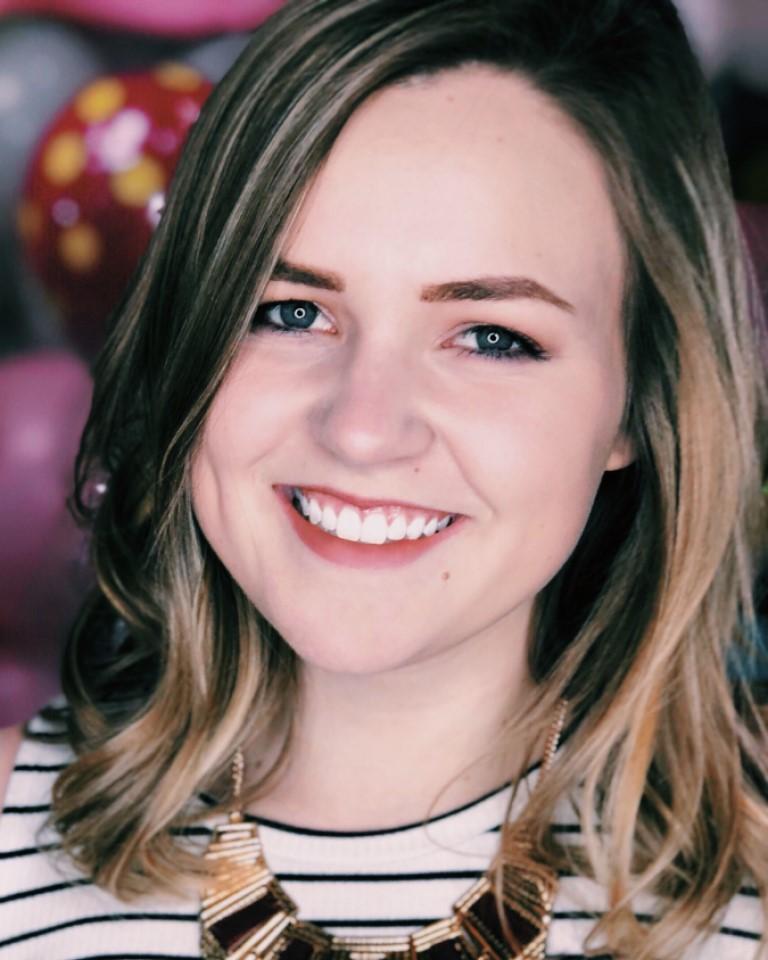Taylor Axtell

STUDENT SPOTLIGHT | FEBRUARY 2019
Major: Behavioral Neuroscience
Describe your research/creative work in just two sentences that we can all understand. I look at an infant's attention when he/she is interacting with a social partner and how that attention develops over time. This is done by looking at the infant's eye movements (in both eye-tracking and play-based tasks) and other nonverbal behaviors such as reaching or pointing.
Q: Who mentors your project?
A: Brenda Salley, Ph.D. from the Department of Pediatrics at KU Medical Center and Corinne Walker, MA CCC-SLP.
Q: What surprised you about doing research?
A: There are so many different topics to be explored within any given field. No matter how deep you get into your research project, there will always be another question or variable to consider.
Q: What did you find most challenging about getting involved in or doing your project? What advice would you offer to students facing similar challenges?
A: Finding the time to not only work on my project, but make sure it was completed well. I've obviously grown to really care about my project and always seem to find something else I want to do in order to make it better. I've found that it's helpful to remember that stumbling upon more questions just means that you're getting somewhere. Things may not necessarily turn out as planned the first time around, but that's okay--it's all part of the process.
Q: What do you like most about your project?
A: It's not your stereotypical lab work. I think being in the Baby Lab in any capacity is a great experience simply because it shows the variability in types of research that a lot of students may not realize exists. I don't deal with test vials all day; I get to play with infants and track their development as they get older.
Q: What advice would you give to a friend wanting to get involved in research?
A: Start now. I got involved in research in the spring of my sophomore year and I wish I had started sooner. It can be difficult to find time for a research project in the midst of so many other responsibilities, but it's really rewarding and worthwhile to pursue if you think research is something that might interest you. There's also not necessarily just one project that's right for you--I've had classes that entailed completing a research project on a smaller scale, and I became just as interested in those topics as I am my current one!
Q: How do you spend your time when you're not working on your research?
A: Aside from going to school, I also work at a nursing facility and volunteer at Audio-Reader here on campus. However, if I'm ever given the free time, my go-to is definitely reading. I used to read a lot when I was younger, so it's nice to jump back in here and there.